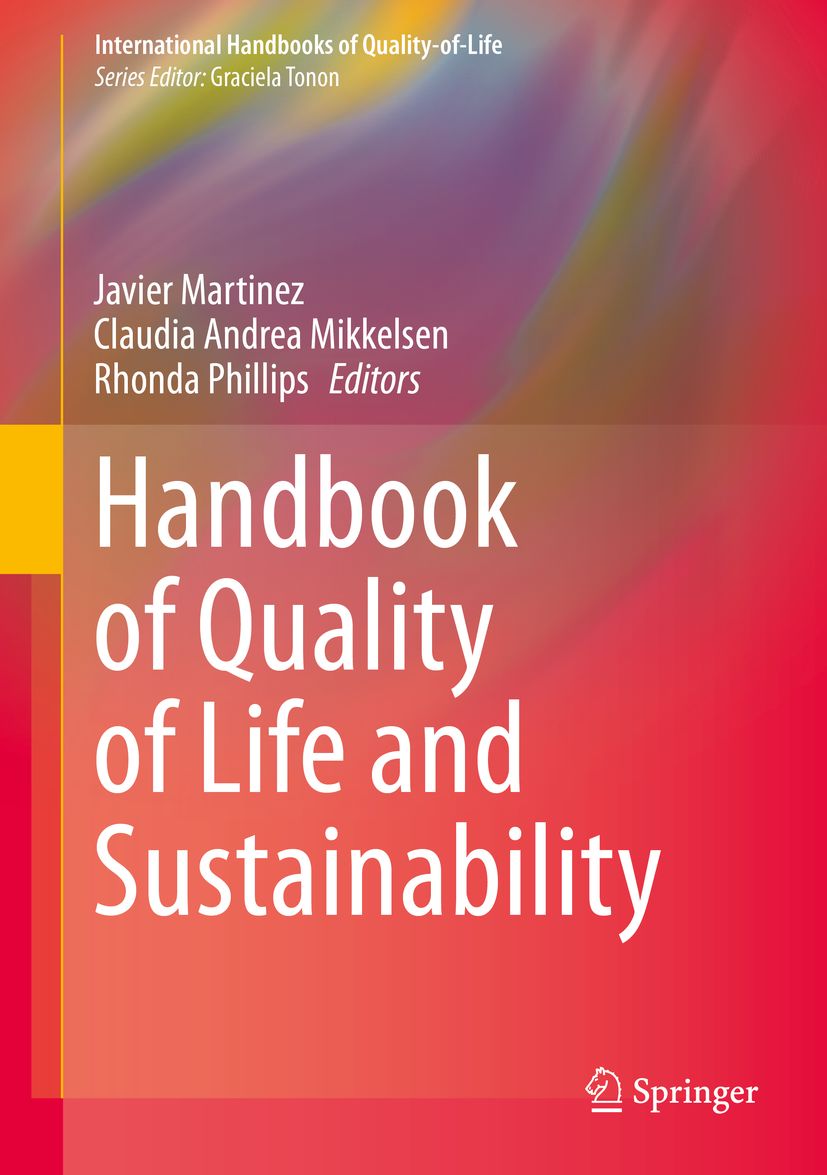| Sun | Mon | Tue | Wed | Thu | Fri | Sat |
|---|---|---|---|---|---|---|
| 1 | 2 | 3 | 4 | 5 | 6 | |
| 7 | 8 | 9 | 10 | 11 | 12 | 13 |
| 14 | 15 | 16 | 17 | Today Thursday, 18 September 18 | 19 | 20 |
| 21 | 22 | 23 | 24 | 25 | 26 | 27 |
| 28 | 29 | 30 |
Chapter in "Handbook of Quality of Life and Sustainability"

Team members of the SES and BInUCom projects contributed a whole chapter to the "Handbook of Quality of Life and Sustainability" recently published by Springer. This chapter is entitled "The Nexus of the UN Sustainable Development Goals and Their Link to Quality of Life: A Case of Urbanization in Ethiopia and India" and contains the following articles:
- Sustainable Development Goals Cross-Impact Matrix for the Case Ethiopia/India
- National Policies for Affordable Housing in Ethiopia and India: A Comparison in Terms of Quality of Life and Inclusivity
- Empowering Key Actors to Achieve SDGs and QoL: Experiences of Curricula Developments in Ethiopia and India
Chapter Abstract:
Urbanization and informal housing are crucial issues for both Ethiopia and India. Higher Education Institutions from those countries work together with European universities on capacity building of future architects and planners to strengthen inclusive and participatory approaches. Thereby, focus is placed on quality of life of effected residents by considering social as well as ecological aspects. This chapter aims to show, how such projects and thereby innovative higher education contribute to the achievement of selected targets of the UN Sustainable Development Goals (SDGs) and how they are linked to quality of life. Especially when it comes to low income strata of urban society, lack of basic amenities and its negative impacts upon quality of life intrinsically point to stark inequalities. For several decades already, nation states as well as regional and municipal authorities have endeavored to tackle slum like housing conditions in cities with a multitude of approaches in order to improve living and livelihoods of low-income groups. Higher education can contribute to the achievement of the SDGs and quality of life through curriculum development geared towards the education of future architects and planners who will be able to deal with the enormous socio-economic complexities of their cities. Thereby, the examples in Ethiopia and India highlight the tremendous impact higher education can have through the inclusion of communities and stakeholders in developing courses close to people’s needs. Reaching marginalized groups with quality education or incorporating the issue of informality, sustainability and quality of life into the curricula are key issues.

